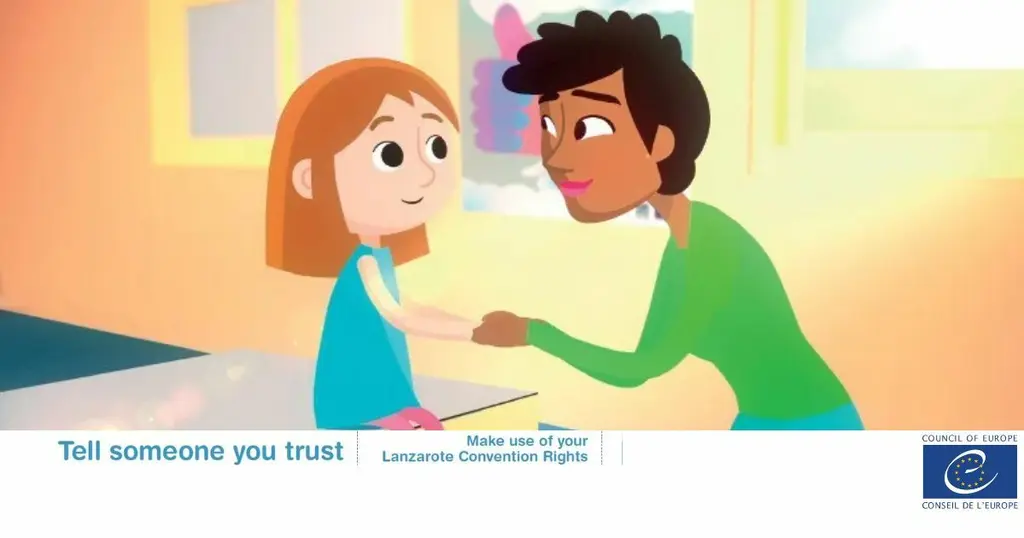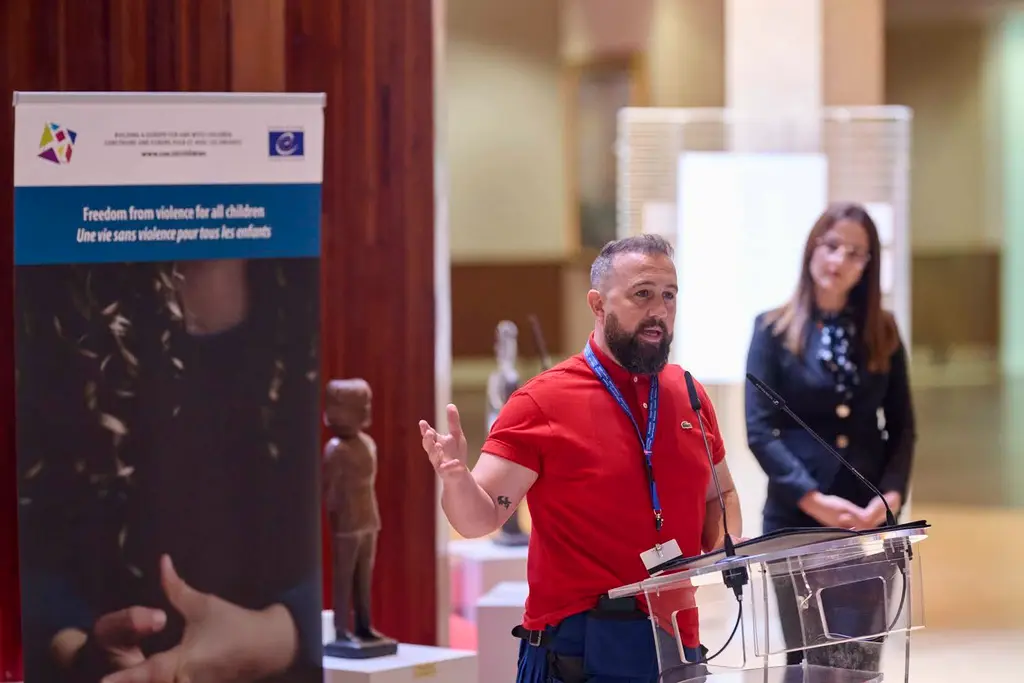Sensitive content
This site contains sensitive content that includes references to sexual violence.

For far too long, child sexual abuse was something whispered about, hidden, denied, or if dealt with at all it was behind closed doors.
"Survivors were left alone, disbelieved, or re-traumatised by justice systems that didn’t understand what we’d been through. Offenders exploited the gaps in the law and crossed borders to avoid being held accountable."
Fifteen years ago, something quietly powerful happened in Europe that changed the course of child protection forever.
It didn’t make the evening news. There were no banners or big speeches. But for those of us who are survivors of childhood sexual abuse, something monumental had taken place: the Lanzarote Convention officially came into force.
You might not have heard of it. Not everyone has. But to me—and millions of others—it’s a symbol of hope, dignity and progress.
The Lanzarote Convention began to shatter the silence. It was the first legally binding international treaty to require countries to criminalise all forms of sexual abuse of children—whether it happened in person or online, at home or abroad.
This comprehensive Convention marked the first time in human history that nations gathered to focus solely on tackling sexual violence against children. Its full title is a bit dry: “The Council of Europe Convention on the Protection of Children against Sexual Exploitation and Sexual Abuse”. Called the Lanzarote Convention because nations were first invited to sign it on the peaceful island of Lanzarote, and for those who did, its commanding measures came into force in 2010. Since then, it’s been changing lives—mine included.
"It laid out what protection really means: not just prosecuting abuse, but preventing it, supporting survivors, and changing the culture of tolerance."
Since 2010, 48 countries have ratified the Lanzarote Convention—and with that signature, each nation committed to putting children first. They agreed to take real, practical steps: training teachers, doctors, and police officers; protecting children online; criminalising grooming and live-streamed abuse; and ensuring children can testify in safe, trauma-informed ways. What’s more, they became part of something bigger—the Lanzarote Committee.

I know 'committee' might sound a bit tedious, but this group, made up of experts from all the ratifying states, meet regularly at the Council of Europe to review how countries are doing, share good ideas, and hold each other accountable. It's a space where survivors’ voices are increasingly being heard and where policies are now being shaped to reflect the reality of what we’ve lived through.
"The Brave Movement were granted ‘Observer status’ in 2022, and as the first survivor in history to be given a seat at this table, I feel deeply honored to have been invited to contribute to these discussions."
The Brave Movement was formed to end all childhood sexual violence globally. In this increasingly complex world of emerging technologies, this will only truly be achieved with a coordinated international response. Exactly as the Lanzarote Convention proposed almost two decades ago.
Engaging with the Council of Europe as a Survivor Activist since 2014, I’ve witnessed the responses from some governments go from alarming statements like “In our nation, we don’t abuse our children” into a growing sense of appropriate urgency like “We need to work together.”
It’s hard to describe what it means to know that more and more governments are finally taking this seriously. To know that childhoods like mine aren’t being ignored or brushed aside. To know that new laws, protections, and support services are now in place for children, because of this treaty.
I’ve witnessed how the Convention has led to tangible reforms—interviews with child victims now recorded to spare them the trauma of repeating testimony; specialised police units trained to sensitively handle abuse cases; public campaigns educating parents and children about grooming and digital safety.
"These are not small wins. They are lifelines."
There’s still more to do. As we mark 15 years since this landmark treaty came into force, I’m deeply grateful to the countries that have signed and ratified it. You’re building a safer world for children. But I also want to speak directly to the nations that haven’t yet joined. Wake up. You can’t fix this alone.
This isn’t just European bureaucracy. The USA, Canada, Japan, and Mexico all contributed to drafting this treaty. It has always been as truly international as the UNCRC. Tunisia is now a member. Chile is considering signing, and about time too. This is about real children in real danger.
"Every country that joins the Lanzarote Convention sends a message: that child protection isn’t optional. Silence is no longer acceptable."
By joining, you gain access to the shared wisdom of 48 other countries. You sit at the table with experts, advocates, and yes, survivors. You learn what works. You get the tools to make your systems better. And you become part of a growing global movement that refuses to look away.
Fifteen years on, the message is clear. The Lanzarote Convention works. It saves lives. It brings healing. It raises standards. And it proves that when countries work together, change is not only possible—it’s already happening. Let this anniversary be more than a celebration. Let it be a call to action. If your country hasn’t yet ratified the Lanzarote Convention, be kind. Join us. Stand with survivors. Protect your children, and all children.
